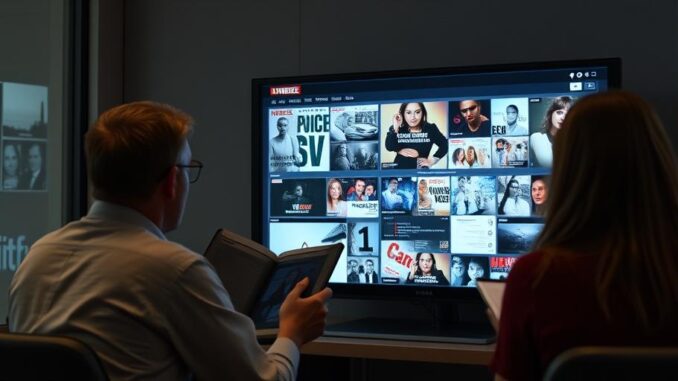
Summary
Brain Cipher ransomware group claimed to have stolen 1TB of data from Deloitte UK. Deloitte stated that only a client’s isolated system was affected, not their internal network. Rhode Island later revealed the client was their RIBridges public benefits system, leading to lawsuits against Deloitte.
Explore the data solution with built-in protection against ransomware TrueNAS.
** Main Story**
So, back in December 2024, remember when Brain Cipher, that ransomware group, started making waves? They claimed they’d breached Deloitte UK, which, you know, sent everyone into a bit of a panic. They were bragging about exfiltrating over a terabyte of compressed data, suggesting that Deloitte had some pretty serious security holes. Deloitte, to their credit, came out swinging, denying any breaches of their internal systems. They said it was a client’s system, located outside their network. So, no Deloitte systems were impacted. Or so they said.
Unpacking the Attack and What Happened Next
Brain Cipher, they hadn’t been around for long, they only popped up mid-2024, and quickly started hitting critical sectors – healthcare, government, education; the usual suspects. They were fond of phishing campaigns, delivering LockBit 3.0 ransomware, and stealing data before encrypting everything. Now, they were claiming that Deloitte had violated security protocols, and they had the receipts in the form of contractual agreements and, yep, compromised client data. They even set a deadline for Deloitte to respond, threatening to leak samples and more juicy details. It was a tense few days there.
Then the Rhode Island connection came to light. See, it turns out the affected client system was Rhode Island’s RIBridges public benefits system. So, that’s when things got really serious. A significant vulnerability came to light, with the potential to compromise the personally identifiable information (PII) of Rhode Island residents. Rhode Island state officials then disclosed that Deloitte had informed them of the potential attack, confirming a likely data breach involving PII. It was quite a mess, really.
Lawsuits and Cybersecurity Scrutiny
Unsurprisingly, the Rhode Island disclosure triggered two class-action lawsuits against Deloitte. Can you imagine the stress on their legal team? Anyway, the lawsuits alleged negligence and, crucially, inadequate cybersecurity procedures. Reckless handling of private information was another accusation, and it certainly added fuel to the fire. This legal action really ramped up the scrutiny on Deloitte’s security practices and the potential knock-on effects for their clients. You can imagine the board meetings weren’t much fun around that time.
Lessons Learned: Hardening Defenses
This whole thing really drives home the point about the constant threat of ransomware attacks, doesn’t it? Even organizations like Deloitte, that we assume have robust security in place, aren’t immune. Now, if you are in charge of security, there are several steps you should consider:
- Continuously review and improve cybersecurity measures. It’s not a one-and-done thing. You have to stay ahead of the curve.
- Embrace a zero-trust approach. Trust no one, verify everything. It sounds harsh, but it’s necessary.
- Isolate sensitive data. Keep your most important information separate from less critical data.
- Maintain strict access controls. Limit who can access what. The fewer people with access, the better.
These are the kinds of steps that can help protect an organization from an attack.
The Evolving Threat Landscape: Staying Ahead
Brain Cipher’s tactics are part of a larger trend – ransomware groups making exaggerated claims and using multi-layered extortion techniques. They want to create a perception of power, and it’s easy to get caught up in the hype. Companies have got to stay vigilant and not fall for their tricks. It is important to remember that these groups often publish outdated and misleading information to create a perception of power and resilience. Remember transparency and accuracy in incident reporting are crucial, both for maintaining public trust and for effective mitigation efforts.
The Deloitte UK incident, its a stark reminder of the ever-changing threat landscape. And the need for constant vigilance in the face of increasingly sophisticated ransomware attacks. As of today, June 21, 2025, investigations are still ongoing, and more information may come out. It’s important to remember that even the biggest players in the industry are vulnerable and this event, may well shape cybersecurity practices for years to come.


Given the interconnectedness of systems, what specific measures could prevent a client’s isolated system breach from potentially exposing vulnerabilities within the broader service provider network? How might contractual agreements address such scenarios?
That’s a great question! Thinking about interconnected systems, robust network segmentation and strict access controls are key to preventing breaches from spreading. Contractually, clear responsibilities for security, incident reporting timelines, and audit rights are essential to mitigating risk. Thanks for prompting this important discussion!
Editor: StorageTech.News
Thank you to our Sponsor Esdebe